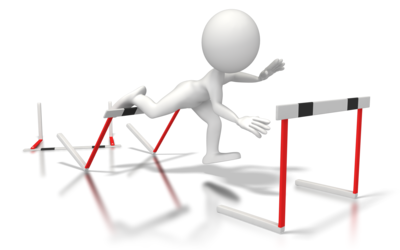Coaching is characterised as a judgement and decision making process. Practitioners and indeed most professionals who work in human performance are de facto coaches of humans. As such, the quest that unites coaches in different sports and practitioners across disciplines is to develop our professional judgement and our ability to make better choices and decisions over time. There is no endpoint to this journey and so the need to continually hone our judgement and decision making applies irrespective of what stage we are might be at in our career. That said, the question of how we best develop these skills for practitioners at the start of their career versus catering for these aspects in continuing professional development thereafter will likely require different solutions.
Emotional Aptitude in Athlete Preparation
Emotion has traditionally been viewed as something to be suppressed. The logic goes that as leaders and people in positions of authority we should be detached and act ‘without emotion’. If somebody is described as ‘emotional’ generally this is construed as a bad thing; when we become ‘emotional’ the implication is that we are no longer being rational or we are not capable of reason. Conventional wisdom advocates we avoid an emotional response or making emotional decisions. In contrast to these established views, more recent study in this area demonstrates that emotion is in fact integral to reasoning, decision making, guiding our behaviour, and our ability to relate to others. Emotional intelligence is accordingly becoming recognised as being at least as important as more established forms of intelligence. Indeed we increasingly hear commentators proclaim that ‘EQ trumps IQ’. In this latest Informed Blog we delve into the role of emotion in coaching and our work with athletes, and explore what aptitudes we need to possess in this area as leaders, coaches, and practitioners.
Fostering Diversity of Thinking
Divergence of opinion has traditionally been viewed in less than positive terms: when x and y don’t see eye to eye on a particular subject, this is generally seen as problematic. By extension, we hear of the virtues of assembling a group of ‘like-minded’ individuals. Organisations typically promote compromise and conformity as virtues to foster harmony and unity within the group. Contrary to this, the wisdom of crowds illustrates the benefits of aggregating judgements from a broad and disparate group of individuals. To further strengthen the case for diversity of thought and experience, ‘cognitive diversity’ is in fact found to be the major factor that differentiates successful teams and organisations. In this Informed Blog, we explore the paradoxical ways diversity and divergence are conceptualised, and see what lessons we can take on a group and an individual level in the context of sport.
A Wake Up Call on Sleep
Sleep is essential to sustaining life. Yet the majority of us are casually dismissive when it comes to sleep. We routinely deny ourselves this most critical sustenance of our own volition. The attitudes towards sleep among high performing individuals in different realms and society in general are quite baffling. We also largely fail to make the connection between the reckless lack of care and attention we give to our sleep and the dizzying array of consequences that inevitably follow. Objectively this behaviour is bizarre, and our failure to prioritise sleep defies logic. With this latest Informed Blog we explore the myriad ways you lose when you don’t snooze sufficiently.
Traits of Elite Coaches and High Performing Practitioners
In this latest offering we explore some of the traits that differentiate the best coaches and practitioners in their fields. One disclaimer before we start is that this post is based on observational study. To some degree the themes we explore reflect wisdom shared by prominent individuals via different forums and media. However, I unapologetically give more weight to traits and behaviours that I have directly observed. I have been fortunate to interact with a representative sample of these exceptional individuals across multiple sports in various contexts; this has provided the opportunity to see how they approach their work with ‘live’ athletes in different scenarios, as opposed to how individuals claim they act and operate in practice. The themes we explore are therefore more a product of this direct observation, rather than simply distilling what has been presented elsewhere.
Informed Shorts: Making New and Better Mistakes
As the saying goes, there is no success without struggle. The fear of making mistakes can become disabling, particularly if our aim is to try something new or different. So perhaps we need to to reframe how we think about making errors to avoid being too constrained by the desire to not get it wrong. The quest to be creative and innovative in our problem solving necessitates having the freedom to try new and different things. This principle applies whether we are seeking to explore new questions, or find different solutions to existing questions.
Informed Shorts: 'Meta Abilities' for Coaches, Practitioners and Athletes
In this second ‘Informed Short’ we explore the concept of meta-abilities, and unpack the superpowers that we can harness to enhance our practice in a variety of realms as coaches and practitioners in sport, and educate our athletes to make use to these tools for themselves. We can define meta-abilities as ‘higher order’ skills. A defining characteristic of meta-abilities is that they effectively determine how well we are able to make use of our other capabilities.
The Why, What, and How of Coaching Movement: Part 3
The current post is the culmination of a three-part series on coaching athletic movement. In the opening part of the series, we delved into the ‘why’, and sought to elucidate what roles we have to play in this space. With part two we got into the ‘what’, and proposed that the lenses of mechanical effectiveness and efficiency might unite our aims in both performance and injury realms. With this final instalment, we get into the ‘how’, and provide some practical guidance on how we might deliver what we outlined in part two, and ultimately fulfill the roles we identified in part one.
The Why, What, and How of Coaching Movement: Part 2
As practitioners we are all essentially coaches, and in our various realms we find ourselves directing athletes on how we want them to move. In the first part of this 3-part post we delved into the why, as we attempted to elucidate what roles we should play, and define what objectives we should be seeking to fulfil when providing instruction to athletes. With this second part on coaching movement we get into the 'what'.














